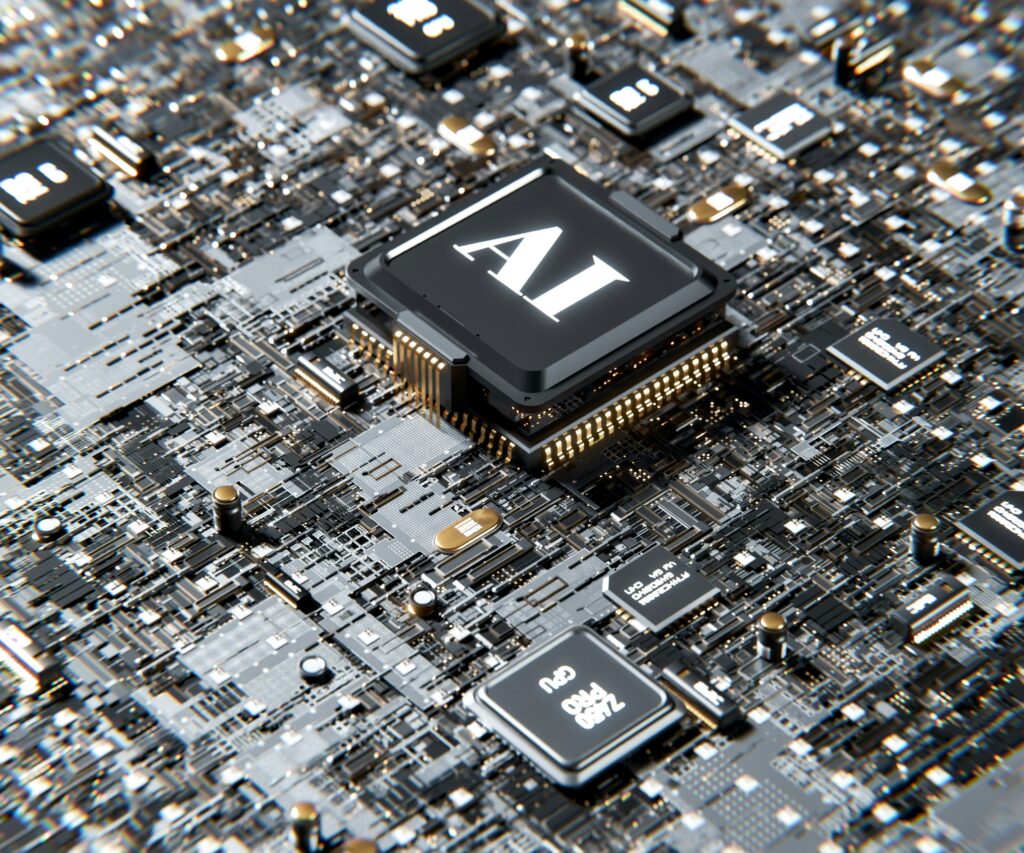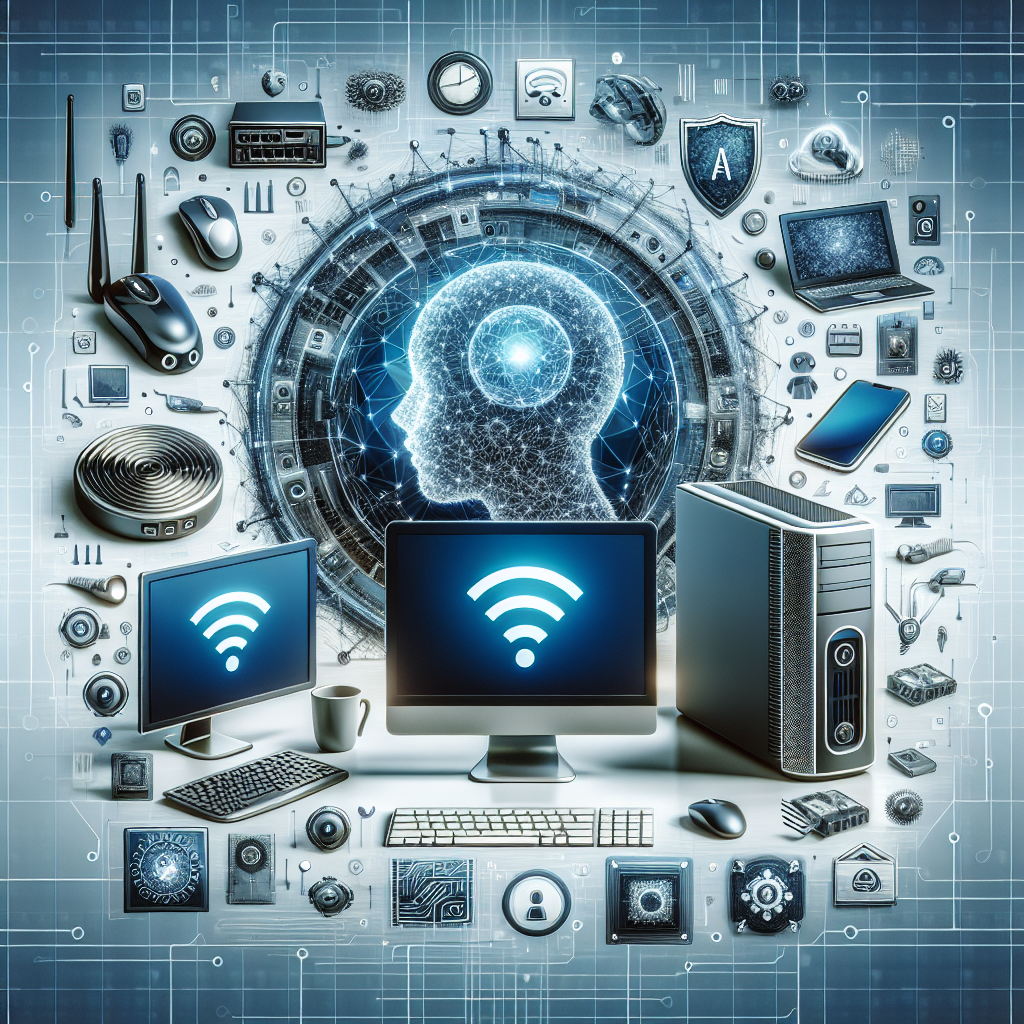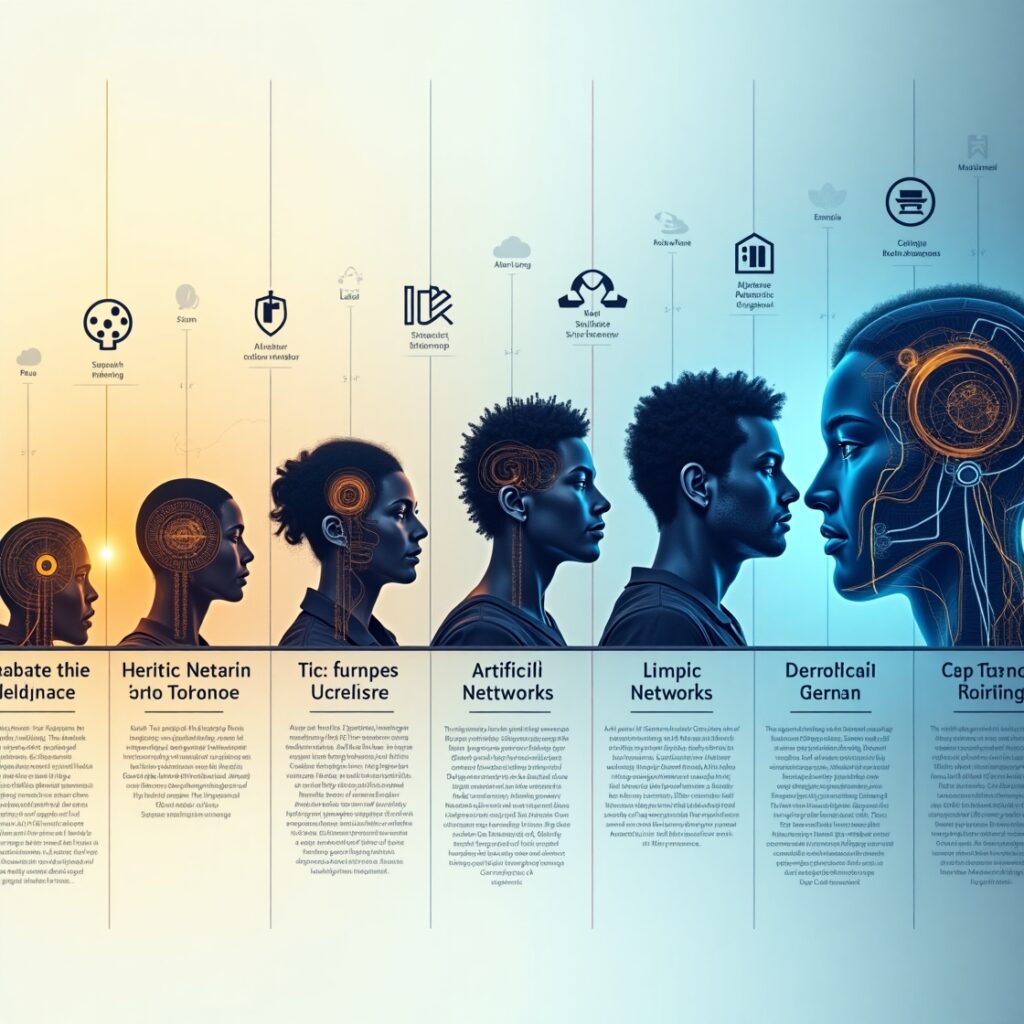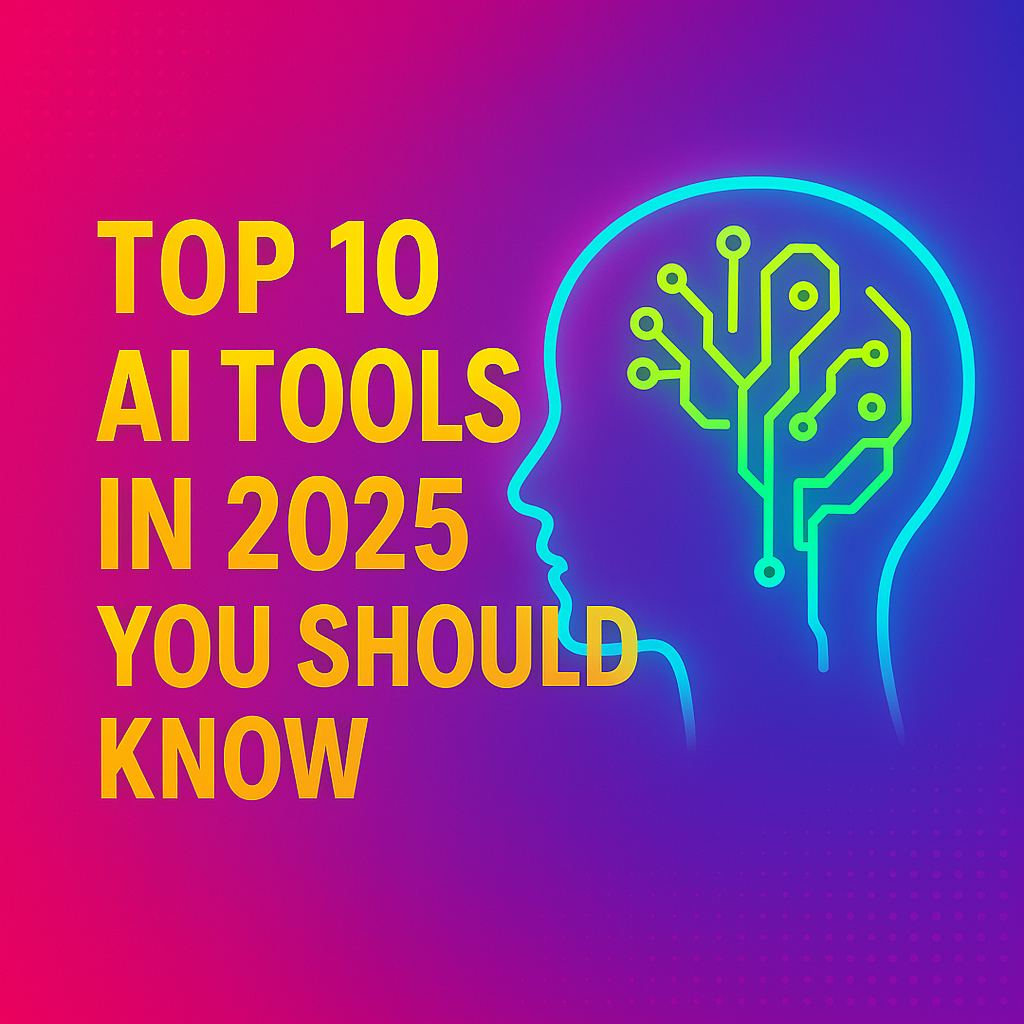
🧠 The Genesis of AI: 1940s–1950s
- 1943: Warren McCulloch and Walter Pitts introduced the first mathematical model of a neural network, laying the foundation for future AI systems.Wikipedia
- 1950: Alan Turing published “Computing Machinery and Intelligence,” proposing the Turing Test to assess machine intelligence.Tableau
- 1956: The Dartmouth Summer Research Project, organized by John McCarthy, Marvin Minsky, Nathaniel Rochester, and Claude Shannon, officially coined the term “Artificial Intelligence,” marking the birth of AI as a field. Wikipedia+1Informa TechTarget+1
🏗️ Building the Foundations: 1960s–1970s
- 1958: Frank Rosenblatt developed the Perceptron, an early neural network model capable of learning from data. Informa TechTarget+1Wikipedia+1
- 1961: George Devol’s Unimate became the first industrial robot, deployed on General Motors’ assembly lines. ACUE
- 1966: Joseph Weizenbaum created ELIZA, one of the first chatbots, simulating human-like conversation.ACUE
- 1969: SRI International developed Shakey, the first mobile robot capable of reasoning about its actions. ACUE+1Wikipedia+1

❄️ AI Winters and Renewed Hope: 1970s–1990s
Despite early enthusiasm, AI faced periods of reduced funding and interest, known as “AI winters,” due to unmet expectations. However, the 1980s saw a resurgence with the development of expert systems, which used rule-based approaches to mimic human decision-making.
♟️ Milestones in Machine Learning: 1990s–2000s
- 1997: IBM’s Deep Blue defeated world chess champion Garry Kasparov, showcasing AI’s strategic capabilities.
- 2002: Roomba, the autonomous robotic vacuum cleaner, was introduced, bringing AI into households.
- 2004: DARPA’s Grand Challenge spurred advancements in autonomous vehicle technology.
🤖 The Deep Learning Revolution: 2010s
- 2011: IBM’s Watson won “Jeopardy!” against human champions, demonstrating natural language processing prowess.
- 2012: The AlexNet neural network achieved a breakthrough in image recognition, winning the ImageNet competition and igniting interest in deep learning.
- 2016: DeepMind’s AlphaGo defeated Go champion Lee Sedol, a feat previously thought to be decades away.
🌐 AI in the Modern Era: 2020s
- 2020: OpenAI released GPT-3, a language model capable of generating human-like text, revolutionizing content creation.
- 2022: AI-generated art gained prominence with tools like DALL·E and Midjourney, sparking debates on creativity and authorship. Wikipedia
- 2024: AlphaFold 3 was announced, capable of predicting complex protein structures, advancing biomedical research. Wikipedia


